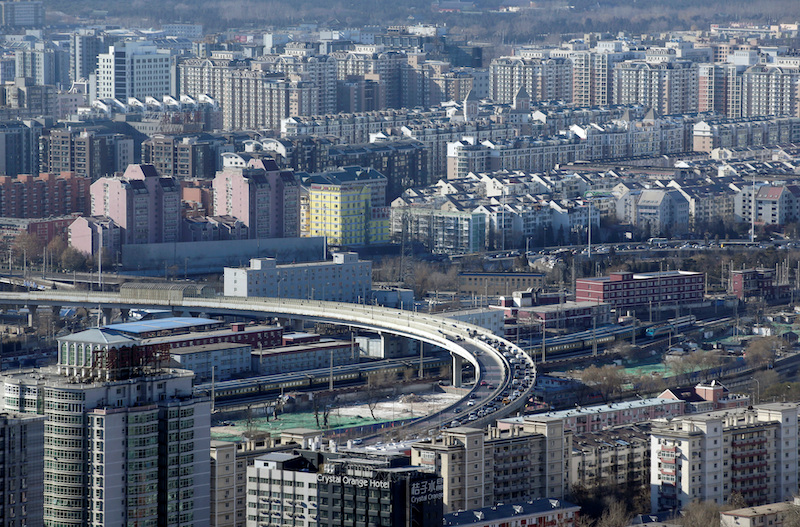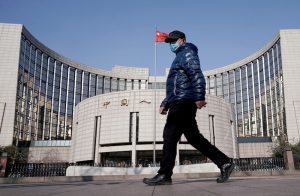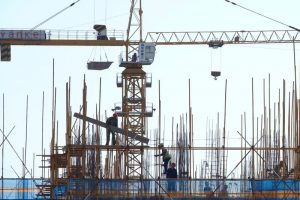The news in China’s beleaguered property market continues to be grim, with home prices and sales falling further in October, according to private data.
The sector has fallen sharply over the past year due to the prolonged government clampdown on excessive borrowing by developers and the slump caused by tight Covid restrictions.
October was the fourth straight month that prices in 100 cities have dropped, falling 0.01% month-on-month after a decline of 0.02% in September, according to a survey on Tuesday by China Index Academy (CIA), one of the country’s largest independent real estate research firms.
Property sales by floor area in 100 cities fell about 20% year-on-year in October, according to a separate statement by the academy.
ALSO SEE:
Shanghai Disneyland Hit by Covid, Foxconn Bumps up Pay 400%
Covid Measures Amplifying Downturn
Analyst Chen Wenjing at the research firm said a recovery in the real estate market depends on Covid containment measures and the strength of policies.
Any rebound is expected to be delayed if the country sticks with strict Covid restrictions to quell the repeated coronavirus outbreaks, Chen said, and they are expected to stay in place for some time.
Despite more than 230 stimulus policies introduced by 160 local governments in September and October, including subsidies, easing of purchase restrictions and decreasing down payment requirements, the property slump has widened from small cities with a net outflow of population to major cities.
Last month, new home prices in Shanghai and Shenzhen fell 0.05% and 0.32% in monthly terms, respectively.
Home sales by floor area in Shanghai and Guangzhou fell 35% and 26% in annual terms, respectively.
“Wait-and-see sentiment in homebuyers currently remains strong, with Covid flare-ups in many areas further dragging down the pace of market recovery and the previous policies have yet to take effect significantly,” Chen said.
CIFI Suspends Offshore Debt Payments
Meanwhile, Shanghai-based property developer CIFI Holdings said on Tuesday it has suspended payments on all of its offshore debt after it failed to reach an agreement with creditors to whom it owes $414 million in total.
CIFI said in a filing it has engaged Haitong International Securities as financial adviser and Linklaters as legal adviser to facilitate a restructuring of its $6.85 billion offshore debt, as it is likely to come under continued pressure to generate sufficient cash for repayments.
The company’s shares plunged 26% following the lifting of a trade suspension that had been in place since Thursday.
CIFI’s default is another blow to the deepening debt crisis, following the resignation of Longfor Group’s chairwoman and state-backed Greenland Holdings‘ request to extend some offshore bond repayments on Monday.
CIFI and Longfor had borrowings totalling 114 billion yuan ($15.6 billion) and 212 billion yuan, respectively, as of June, and Greenland had 122 billion yuan.
While Beijing-based Longfor has not run into liquidity problems, the three companies were considered safer bets previously due to the state support on their financing.
These events are likely to worsen investor concerns about China’s property sector at a time when already weak sales are likely to be weighed by fresh Covid lockdowns across the country.
Longfor recovered 7.8% by early afternoon after plummeting 24% on Monday, while Shanghai-listed Greenland dropped 1.1%. Hong Kong’s broader Hang Seng Mainland Properties Index rose 2.9% while China’s CSI300 real-estate sub-index fell 1.1%.
Conditions Worsening
In CIFI’s filing on Tuesday, it said the failure to meet offshore debt obligations was because of a further deterioration in sales and credit availability and heightened payment pressure triggered by a ratings downgrade.
Greenland also blamed declining property sales and the overall economy, as well as rising US interest rates for its inability to repay on time, according to a transcript of the firm’s Monday meeting with creditors.
“Until now we don’t see any turning point for sales of the whole industry,” a senior executive of Greenland said. “Although every city is relaxing rules and has encouraging policies, from the front line we feel it’s not optimistic.”
The executive also said while state shareholders including the Shanghai government and State-owned Assets Supervision and Administration Commission Of Shanghai Municipal Government have supported offshore repayments in the past, the firm’s “extreme situation” now required a market resolution.
Greenland declined to comment.
S&P Global Rating director Edward Chan said the market is disappointed after CIFI and Greenland’s news as there had been hopes that they could make repayments. The rating agency withdrew its rating on CIFI last month.
“According to (CIFI’s) disclosures in the past it seemed they still had cash in hand…so is this a problem of willingness or a problem of capacity (to repay)?” Chan said.
“I think it’s a question mark: a lot of the investors are doubting that. This would weaken investor confidence further.”
Regarding developers generally, he said the market is monitoring closely if there would be further weakening in buyer confidence and whether existing financing channels could be maintained.
CIFI said in its filing its offshore debt problems do not materially affect onshore financing arrangements as a whole and that commercial operations remain normal.
- Reuters with additional editing by Jim Pollard
ALSO SEE:
China’s Greenland Aims For Offshore Bond Payment Extension
Hong Kong Bids to Restore Global Reputation With Key Summit
China to Ease Stock Rules But Property Outlook Still Dire
























